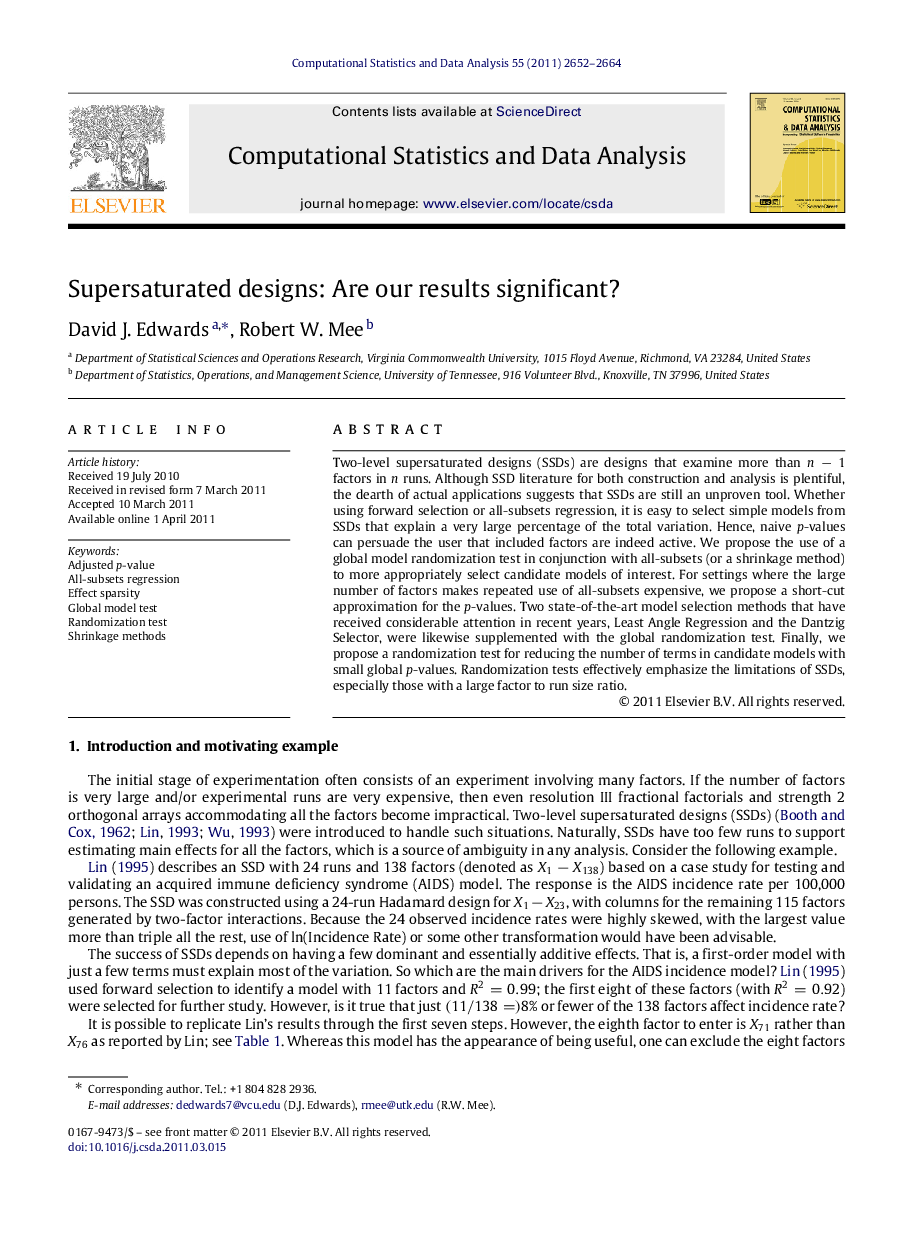| Article ID | Journal | Published Year | Pages | File Type |
|---|---|---|---|---|
| 415920 | Computational Statistics & Data Analysis | 2011 | 13 Pages |
Two-level supersaturated designs (SSDs) are designs that examine more than n−1n−1 factors in nn runs. Although SSD literature for both construction and analysis is plentiful, the dearth of actual applications suggests that SSDs are still an unproven tool. Whether using forward selection or all-subsets regression, it is easy to select simple models from SSDs that explain a very large percentage of the total variation. Hence, naive pp-values can persuade the user that included factors are indeed active. We propose the use of a global model randomization test in conjunction with all-subsets (or a shrinkage method) to more appropriately select candidate models of interest. For settings where the large number of factors makes repeated use of all-subsets expensive, we propose a short-cut approximation for the pp-values. Two state-of-the-art model selection methods that have received considerable attention in recent years, Least Angle Regression and the Dantzig Selector, were likewise supplemented with the global randomization test. Finally, we propose a randomization test for reducing the number of terms in candidate models with small global pp-values. Randomization tests effectively emphasize the limitations of SSDs, especially those with a large factor to run size ratio.
